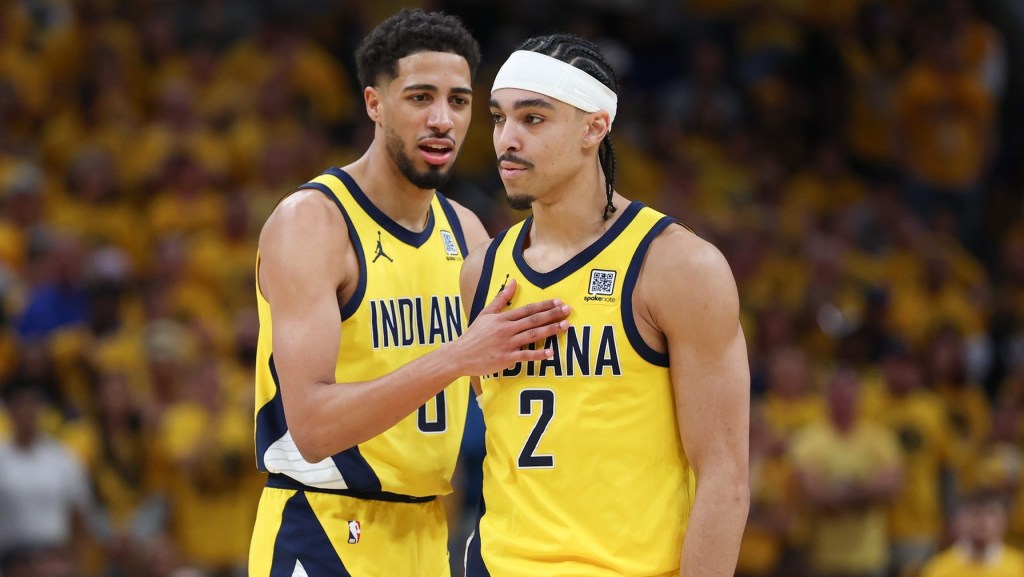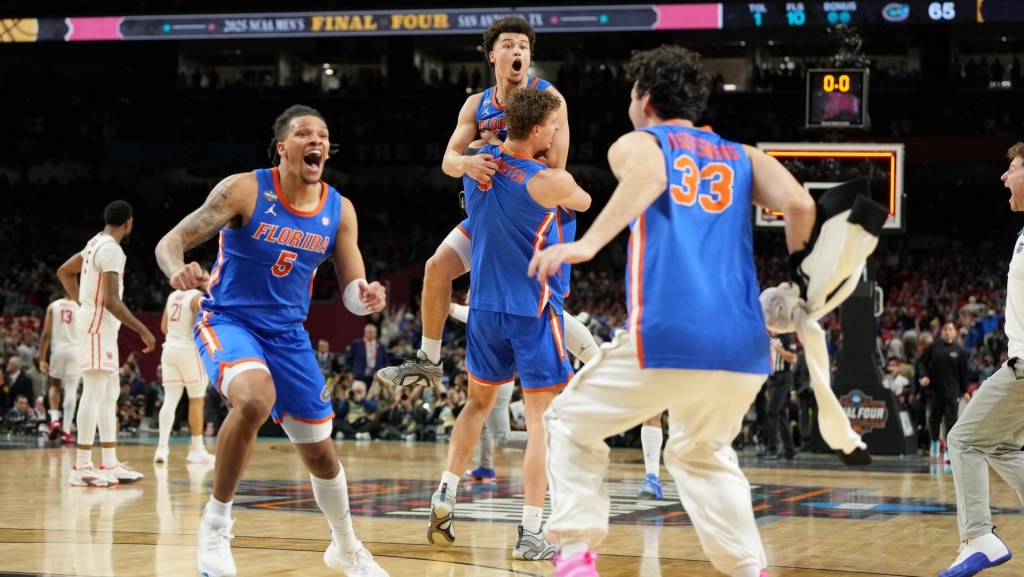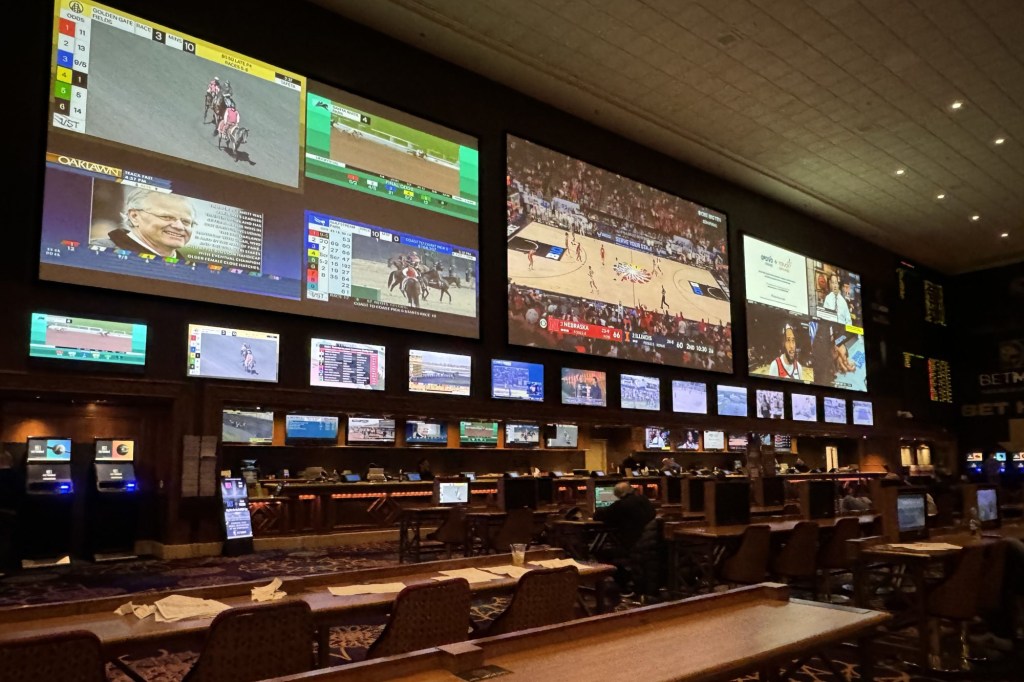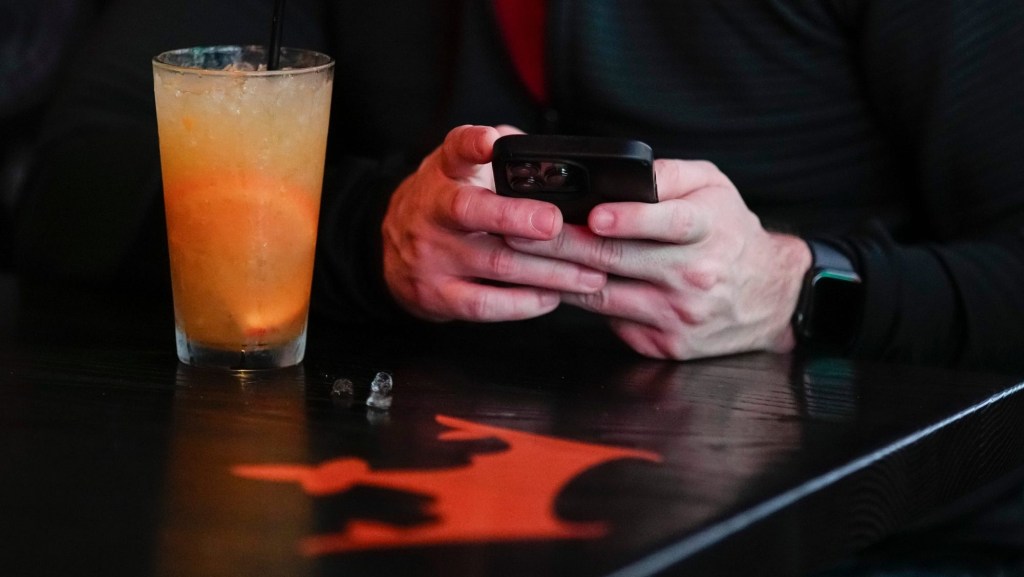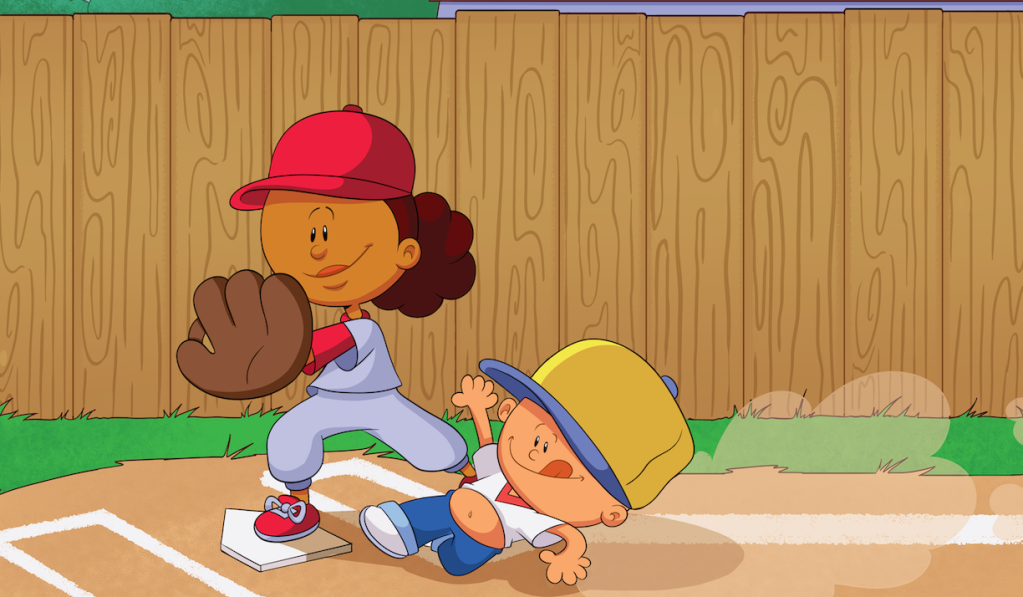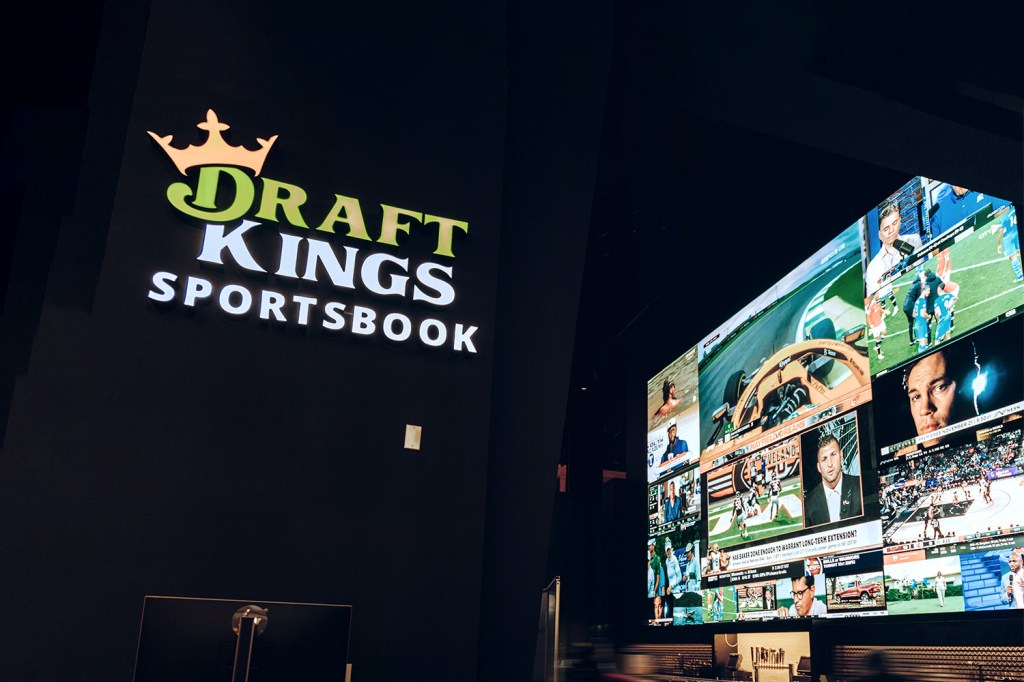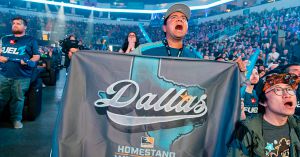
Photo Courtesy: Dallas Fuel
Jiri “LiNKzr” Masalin had his doubts.
The Houston Outlaws player saw the same thing that so many fans, broadcasters and pundits did about the Overwatch League. That no matter how sleek the game design is, no matter who signed on as part of its star-studded ownership group and no matter how much financial muscle Blizzard puts behind the 16-month-old league, it’s future – “The whole premise of the league,” confirms Dallas Fuel owner Mike Rufail – hinges on how successfully it will geolocate its 20 franchises next year for its third season.
The league had its first test run on Saturday and Sunday at the Allen Event Center in suburban Dallas in the first of three “Homestand Weekend” events this season. It would be hard to term it anything other than a rousing success. The arena was filled to its 4,500-person capacity on both days, and the event featured activations from sponsors including Jack in the Box (the Fuel’s jersey sponsor), GameStop, AB InBev, T-Mobile and Omen by HP.
READ MORE: Esports Fashion Levels Up as Esports Continue into Mainstream
But the most impressive feat of all was the environment. With the Dallas Stars’ mascot, Victor E. Green, in attendance, the Fuel’s event staff manufactured an environment that resembled a playoff hockey game more so than any conventional expectations of an esports match, with accouterments like pyrotechnics, a live performance from electronic music artist Karma Fields and a cosplayed version of a dot race – and, crucially, a red-hot crowd.
When it was all said and done, even wary people like Masalin couldn’t help but be impressed.
“As someone who played online throughout most of my career, I was obviously a bit skeptical with everything that would go into this,” he says. “But after being here and feeling the crowd and seeing how the logistics were and just how it feels to be a player in this kind of situation, I was very impressed with what we managed to do on super-short notice, basically. I’m excited for next year instead of skeptical.”
OWL’s now has two chances to replicate it, first in Atlanta in July before heading to Los Angeles in August. But the true questions concern how much of the weekend’s pomp and circumstance will translate across the globe once localized matches aren’t part of a barnstorming tour but instead are featured on the everyday menu in crowded sports markets.
For his part, Rufail isn’t concerned about the Fuel’s prospects. Per the Fuel’s PR team, 77 percent of tickets were sold to Texas buyers, a number suggesting that the foundation of a core audience is already in place. Instead of worrying about regression, he wants to go even bigger when it comes time for the Fuel to choose a permanent home ahead of the 2020 season.
[mc4wp_form id=”8260″]
“I would like to see more fans in the seats and test if our fans will come out and sell out a bigger crowd,” he says. “You won’t ever know until you do it, you know? And so that’s the first priority, to see if we can get a bigger crowd.”
Yet the league is fighting a war on two fronts, and only one of them is with conventional sports. The second is with its audience’s consumer habits in a marketplace that shifts at warp speed. Fortnite, for instance, was barely a blip on the radar when the Overwatch League’s first season kicked off last January; now, the battle royale game is a global sensation. Overwatch’s Twitch numbers have also fluctuated, perhaps due to longstanding critiques regarding the gameplay experience going stagnant, chatter that culminated in a viral video by retired pro Brandon “Seagull” Larned – arguably the league’s most recognizable star during its first season – who called the game a “coin flip.” Fewer everyday players could eventually choke off the supply of fresh talent, which in turn could stagnate the league’s ability to mint new stars.
Rufail isn’t worried about that last point, instead pointing out that the majority of NFL fans are hardly active football participants. And, it’s worth noting, any big-picture concerns certainly don’t appear to be putting an immediate damper on growth. Big-name sponsors are continuing to sign on. AB InBev (necessary disclosure: AB InBev is a partner of Front Office Sports) used the first Homestand Weekend to kick off a leaguewide partnership, while GameStop is jumping aboard as a partner of the Fuel. The league’s Twitch numbers are back on the upswing, too, after becoming the livestream platform’s most-viewed account for the month of April. Now, the first Homestand Weekend has given the Overwatch League proof of concept for prospective partners that their product that can be monetized in all the ways traditional sports have been for generations.
READ MORE: Sports World Takes on TikTok as Next Social Media Frontier
“We have great demographic trends,” says the Outlaws’ Jacob “Jake” Lyon. “The only thing esports is missing from a business perspective is all those revenue streams that traditional sports are really relying on, which are ticket revenue, concessions revenue, bringing people into a physical space and making that experience so much richer than it could possibly be online or on television.”
Like his teammate Masalin, Lyon is convinced: Overwatch League – and esports – is here to stay. Last weekend only gave him 4,500 reasons to believe more fervently.
“Anyone looking for a litmus test, ask any fan in the building if they had a good time and if they can get their friends to come next time,” Lyon says.
“I think that’s really all you need to know about the future of esports.”
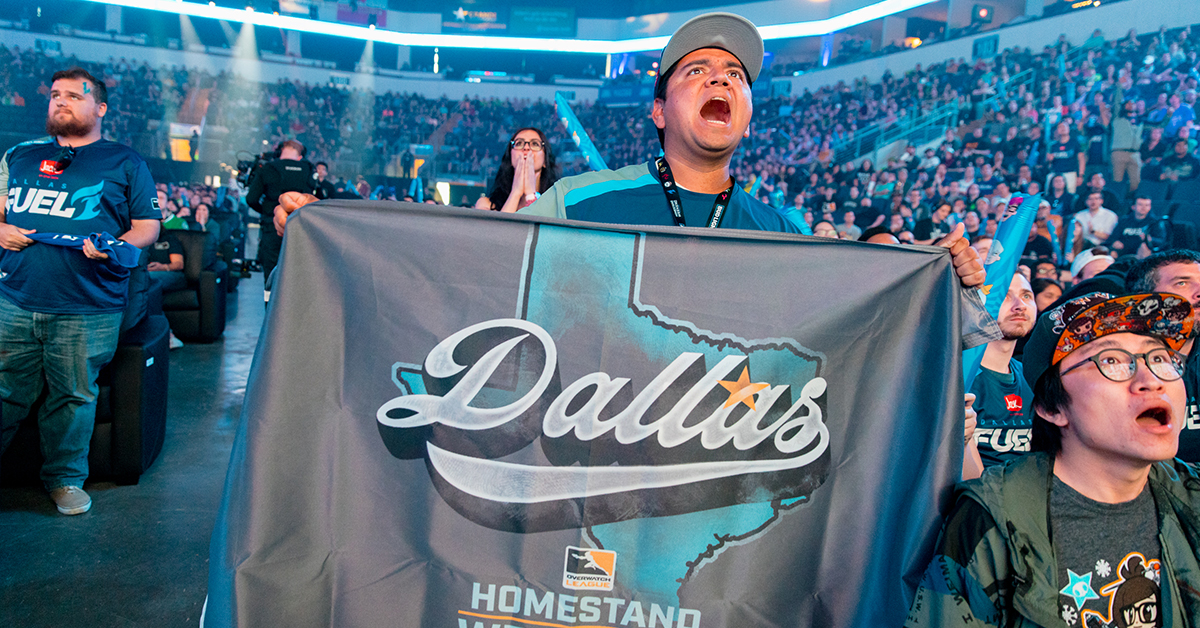
![[Subscription Customers Only] Jul 13, 2025; East Rutherford, New Jersey, USA; Chelsea FC midfielder Cole Palmer (10) celebrates winning the final of the 2025 FIFA Club World Cup at MetLife Stadium](https://frontofficesports.com/wp-content/uploads/2026/02/USATSI_26636703-scaled-e1770932227605.jpg?quality=100&w=1024)







